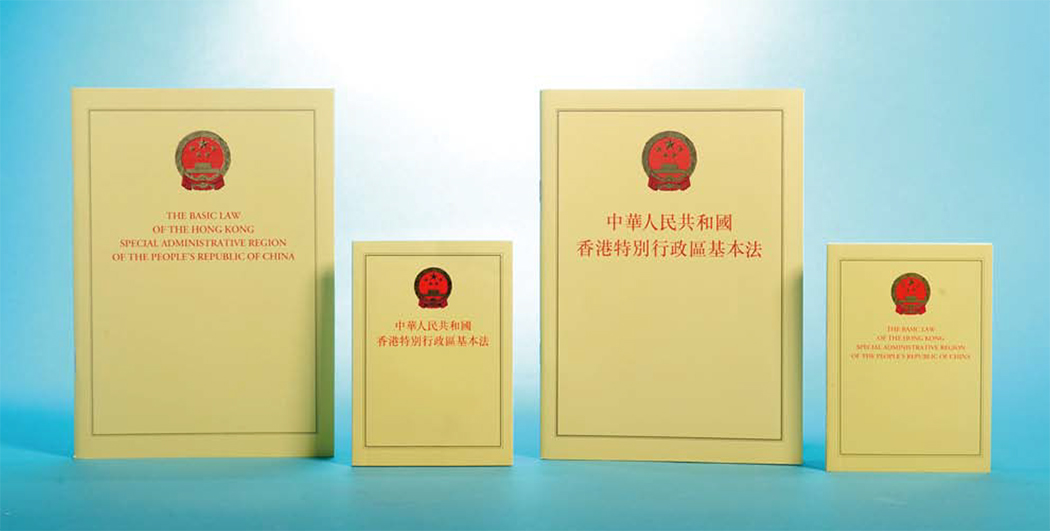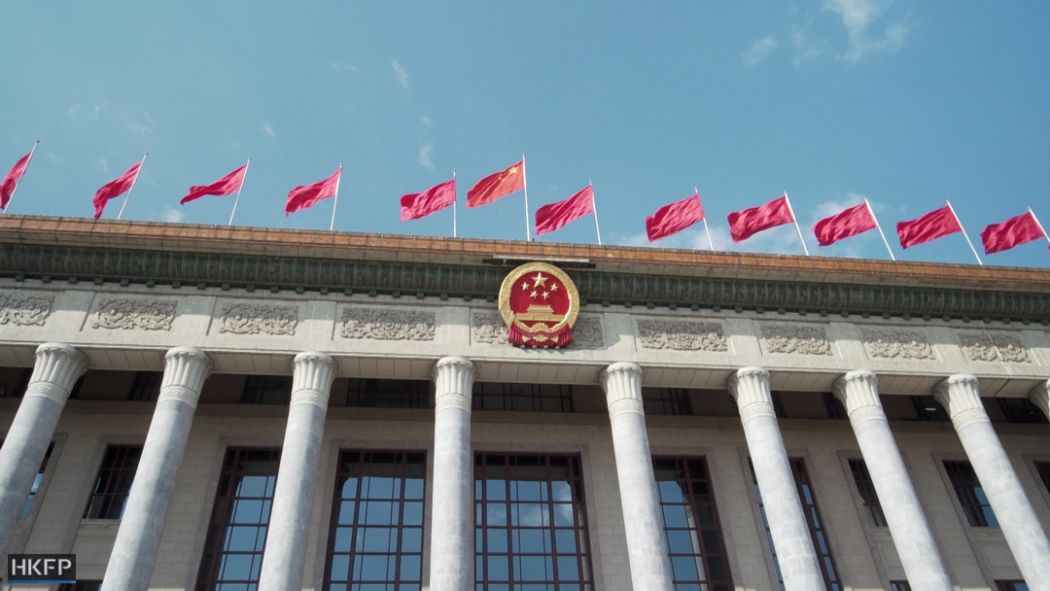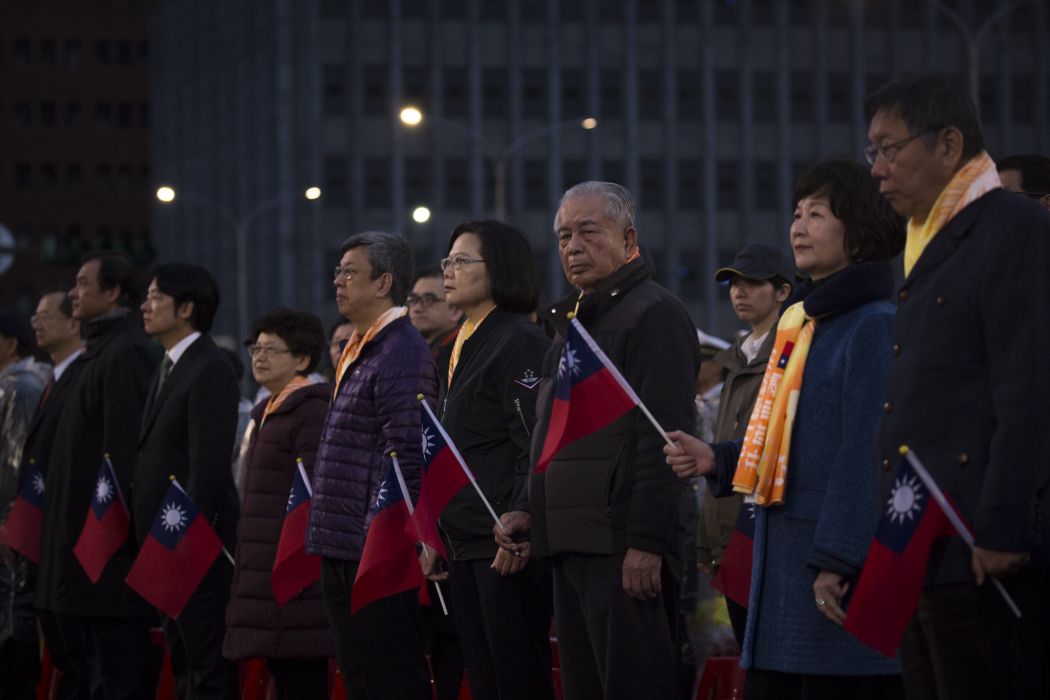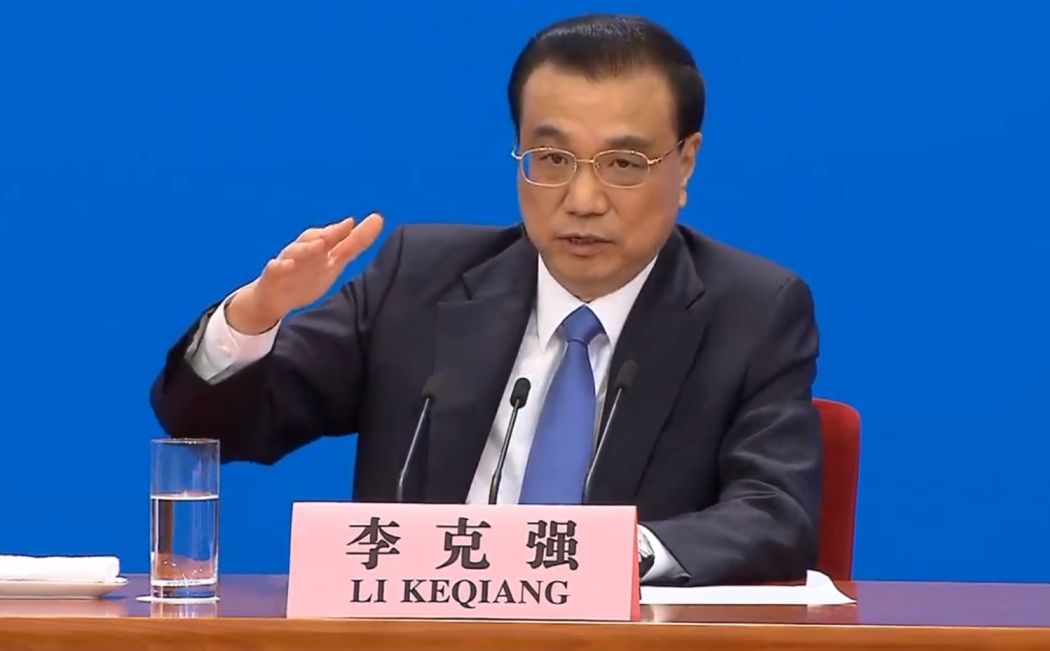For all the years since 1997, Hong Kong has lived by the governing principles spelt out in its post-colonial Basic Law constitution. This was drafted under Beijing’s supervision in the late 1980s, promulgated by Beijing in 1990, and went into effect on July 1, 1997, the day Hong Kong transferred from colonial back to Chinese rule.
Government officials, judges, and society at large have all regarded the Basic Law’s mandates as the foundation of Hong Kong’s present way of life, with safeguards also for the years to come.
But doubts about loopholes and grey areas were voiced immediately, in 1990, and the contradictions grew as implementation progressed. Hong Kongers have been obliged to learn-by-doing that the Basic Law’s words do not necessarily mean what they seem to say.
Or at least, they do not mean the same thing to all the players in this political scenario, including people here and ruling central government officials in Beijing.
Among the words that have caused the greatest confusion are ‘universal suffrage elections’. Hong Kongers learned during the long electoral reform campaign that was allowed to carry on without a conclusion from the 1980s until 2015, that the Basic Law’s promises in this respect can actually be interpreted in many different ways.
Basic Law Articles 45 and 68 promise that Hong Kong’s Chief Executive and all the members of its legislature can be chosen by universal suffrage elections, but no one knew until 2014-15 how Beijing would interpret those promises.

Another lesson, currently being learned, is that the Basic Law’s promises about all the rights and freedoms… speaking, publishing, demonstrating, associating, contesting elections… also do not mean all that everyone originally thought.
It follows that if Beijing officials can impose their own definitions on so many aspects of public life, then other even more fundamental promises might also not turn out to mean what they were initially thought to imply.
Among the most important was the Basic Law’s promise granting Hong Kong a “high degree of autonomy.” This promise was placed right at the beginning, second only to Article One that declares Hong Kong to be an “inalienable part of the People’s Republic of China.”
According to Article Two: “The National People’s Congress authorises the Hong Kong Special Administrative Region to exercise a high degree of autonomy and enjoy executive, legislative and independent judicial power, including that of final adjudication, in accordance with the provisions of this Law.”
The phrase coined to describe this arrangement was “one country, two systems,” signifying that Hong Kong enjoys its own autonomous “system” within the larger system of the nation as a whole.
A key question now, after 20 years’ experience with this awkward design, concerns just how much remains of that autonomy pledge. And, how do officials in Beijing envisage the way forward? In other words, how might they like to reword Article Two if they could?
The growing tension between Hong Kong’s autonomy and the antithetical pressures being exerted by Beijing was actually featured by party and state leader Xi Jinping himself in his report delivered to the 19th National Congress of the Chinese Communist Party (CCP), in October 2017. But in typical fashion, he only identified the contradiction without suggesting how it might be reconciled in practice.

Point 12 of that report was titled “Uphold ‘One Country, Two Systems’ and Promote National Unification.” In it, President Xi Jinping held that the combination of Beijing ‘s “comprehensive jurisdiction” over Hong Kong, together with the “high degree of autonomy” guarantee, must be maintained in an “integral way.”
Moreover, the “one country, two systems” policy will not change or waiver… but it also must not be distorted in practice.
The Chinese Communist Party’s (CCP) familiar “unity of contradictions” phraseology left room for all kinds of anomalies and variations on the theme… variations of the kind that now seem to be making a mockery of the original autonomy pledge.
Hints from the two sessions
Some indications as to evolving official thoughts on these contradictory dimensions of the mainland-Hong Kong relationship appeared in speeches and commentaries during the just-concluded March 5-15 meetings of the National People’s Congress (NPC) and its companion honorary body.
This latter is known as the Chinese People’s Political Consultative Conference (CPPCC). The joint annual gathering is known for short as the “Two Sessions.”
The CPPCC is a conference of appointees, some 2,000 in number, who are honoured by the appointment both for their standing in their own individual fields of endeavour, and for their reliably patriotic political views. Because of that combination, they are seen as valuable united front opinion leaders.
The 3,000 NPC deputies are indirectly selected from the provincial people’s congresses that are part of a nationwide representative hierarchy under CCP leadership at each level.
The meetings, held each year in March soon after the Lunar New Year holiday, are occasions for press conferences and much peripheral speech-making, as well as official reports on work accomplished during the year just past and on plans for the year to come.
It is also a time for renewing delegates’ commitment to the national enterprise. They are enjoined to return home and work toward that end in all respects, and Hong Kong’s representatives are ever mindful of their responsibilities.
While it is not a time for problem-solving or decision-making or dramatic overtures, the annual meetings provide an opportunity to assess the current state of official thinking on a range of policy areas.

Relevant commentaries on Hong Kong and its special one-country, two systems status contained some suggestive thoughts on how officials are trying to find ways of squaring the circle, and reconciling autonomy with integration… except that the ways provide cold comfort for Hong Kongers worried about their loss of autonomy. The ideas all pointed in the direction of more integration not less.
They were presented this year in the context of Taiwan’s future, and of Beijing’s ambitious plans for Hong Kong itself as part of a new development construct known as the Greater Bay Area.
On Taiwan
The commentaries on Taiwan followed from Xi Jinping’s New Year’s Day speech this year when he hailed the great success of Hong Kong’s return to the Motherland via the “one-country, two-systems” model. He called on Taiwan to follow in Hong Kong’s footsteps, adopt the same framework, and reunite with the mainland after decades of living separate political lives.
But Xi had specifically emphasized the national unifying aspects of the “two-systems” formula. Among the features he singled out was the promotion of integrated development projects between Taiwan and the mainland, as well as the need for a sense of common purpose deriving from their “Chinese-ness” referring to a shared national and ethnic identity.
Most authoritative of the remarks on Taiwan during the Two Sessions were those made by Premier Li Keqiang during a press conference on March 15, the closing day of the NPC meetings. He said Beijing was planning to introduce more preferential policies and development opportunities for Taiwan’s citizens.
The idea, he said, was that such opportunities were bringing Taiwan people and the mainland “closer and closer” together, in this case based on shared material interests. Beijing’s assumption is that economic ties will lead to political reunification.
A broadcast interview heard in Taiwan as the Two Sessions were getting underway was more detailed. The speaker was Major General Wang Weixing. He listed ten “privileges” that Taiwan residents would enjoy under a Hong Kong-style “two-systems” reunification arrangement.

Taiwan’s local government would function under the unified national structure. But Taiwan would enjoy greater powers than Hong Kong. The 10-point preferential treatment he itemized nevertheless seemed identical to the promises written into Hong Kong’s Basic Law: a local legislature, independent judicial power, some foreign affairs rights, financial independence, an independent monetary system, and so on. The only extra was that Taiwan would be able to maintain its own military defence capabilities.
Another message for Taiwan came from Liu Jieyi, who heads both the party and the state offices for Taiwan affairs in Beijing. Liu reiterated Xi Jinping’s theme of a Hong Kong-style one-country, two-systems reunification arrangement for Taiwan. But like Xi in January, Liu seemed far more interested in discussing the implications for national integration than the specifics that might reassure Taiwan.
According to the account of Liu’s remarks, two-systems reunification would not only safeguard national sovereignty, security, and other national interests. The arrangement would also allow the mainland and Taiwan to complement each other and cooperate, and thus achieve integrated development.
Reunification would enhance common interests and national identity, and build a national mechanism to address the concerns of everyone on both sides of the Taiwan Strait.
The link between Hong Kong and Taiwan as a joint exercise in national integration was even more pronounced in remarks made by Zhang Zhijun. Zhang heads the mainland’s semi-official Association for Relations Across the Taiwan Strait. During a sit-down with reporters, he dismissed the notion that Hong Kong’s one-country, two-systems model had failed to deliver as promised.
That idea, about failure, was manufactured by Taiwan separatists, to be used as a propaganda ploy in the service of their cause. In fact, it was the separatist cause that was doomed to fail.
China now had the second strongest economy in the world, making Taiwan’s separatist stance impossible to sustain and national reunification impossible to resist.
Further, in support of his deterministic economic line of reasoning, Zhang pointed out that Hong Kong now had an even brighter future as part of the Greater Bay Area project, since this was destined to transform the whole region into a high-powered world-class hub specialising in the provision of financial services and high-tech development.
The Guangdong-Hong Kong-Macau Greater Bay Area Construct
The Outline Development Plan, advertised for months in advance, was formally announced with great fanfare in mid-February, just in time to make a splash at the Two Sessions.
The plan calls for all local jurisdictions in the Pearl River Delta region, renamed the Greater Bay Area, to cooperate and coordinate for innovation, technological development, and environmental protection, while “leveraging and capitalising on the strengths of each place for the greater benefit of all.”

Bernard Chan, convener of Chief Executive Carrie Lam’s Executive Council or cabinet, addressed the concerns of many when he wrote that the Bay Area project is not some new “devious plot” aimed at blurring lines and promoting ever more cross-border integration between Hong Kong and the mainland.
But he acknowledged that the plan could only work if all the diverse jurisdictions cooperated, coordinated, lowered barriers, and worked in unison for the common good.
The idea, he says, is to offer Hong Kong more mainland opportunities but not oblige HK to change those aspects of its “system” that are needed in order to transform the Greater Bay Area as a whole into Beijing’s vision of an international metropolis.
And what aspects of the Hong Kong system are valued in that way? They are not evidently about the rights and freedoms of a civil society. Chan mentioned only those necessary for international business and trade: an open market economy, the free flow of capital, and a legal system that can be relied on to adjudicate commercial disputes fairly.
In fact, everything at this early date is still in the discussion and planning stage. But Chan says life is “seriously disjointed” in the region that is home to 70 million people. Aspects of life that he and others project for cross-border realignment seem deliberately calculated to blur many cross-border lines: transport connectivity, tax incentives, residency permits, work rules, children’s schooling, banking, payment systems, and the proposals continue…
The official roll-out also belies the political imperatives that seem to be driving Beijing’s latest cross-border initiative. These actually began years ago with the massive high-speed railway and Pearl River Delta bridge-building projects.
Ongoing local protests over the ill-disguised effort to “erase the border,” ultimately had no impact. Both infrastructure projects were finally completed last year and are now bringing tens of thousands of mainland travellers to Hong Kong on a regular basis.

But especially, the Greater Bay Area publicity campaign is focusing on opportunities that await Hong Kong’s younger generation… if only they will abandon their stubborn ill-advised resistance and allow themselves to contemplate the careers that beckon across the border in Guangdong province.
This appeal to the younger generation follows from Beijing’s strategy for dealing with its own dissident pro-democracy activists. It seems to be based on the assumption that, like China’s 1980s democracy movement after the 1989 crackdown, Hong Kong pro-democracy partisans can be subdued by a combination of carrots and sticks, economic rewards combined with zero tolerances for dissent… neatly summed up by one local commentator as the “purge and merge” strategy for Hong Kong’s future.
Premier Li Keqiang brought all this together in the official language of his work report to the Congress. He expressed full support for Hong Kong and Macau; pledged to uphold their “high degree of autonomy,” within the one-country, two-systems framework; and pledged also to encourage their participation in the Greater Bay Area enterprise, the better to deepen their mutually beneficial cooperation with the mainland.
A separate report by the National Development and Reform Commission pledged to help the two Special Administrative Regions in their task of integrating with the national development enterprise. The assistance would include making it easier for residents from both regions to live and work on the mainland.
Redefining the terms of association
Based on the official ideas now circulating, a tentative answer to the question about Beijing’s plans for Hong Kong’s future is that the “high-degree-of-autonomy” promise must remain unchanged, as if written in stone. Officials will thus be able to carry on claiming, as they do now, that the promise has not been abandoned… even as it continues to be hollowed out in many ways.

But if Beijing holds to its present course, and the current direction remains unchanged, the promise will continue to “evolve” until the original assumptions become little more than a fading memory… unless Hong Kongers can find the will and the energy to keep them alive.
No one talks about the Basic Law’s Article 5 any more. Article 5 promises that Hong Kong’s existing, as of 1997, way of life will remain unchanged for 50 years. According to the Aesopian language of Article 5: “The socialist system and policies shall not be practised in the Hong Kong Special Administrative Region, and the previous capitalist system and way of life shall remain unchanged for 50 years.”
At its current rate of erosion, few are inclined to speculate on what might be left of Hong Kong’s autonomy by 2047.
